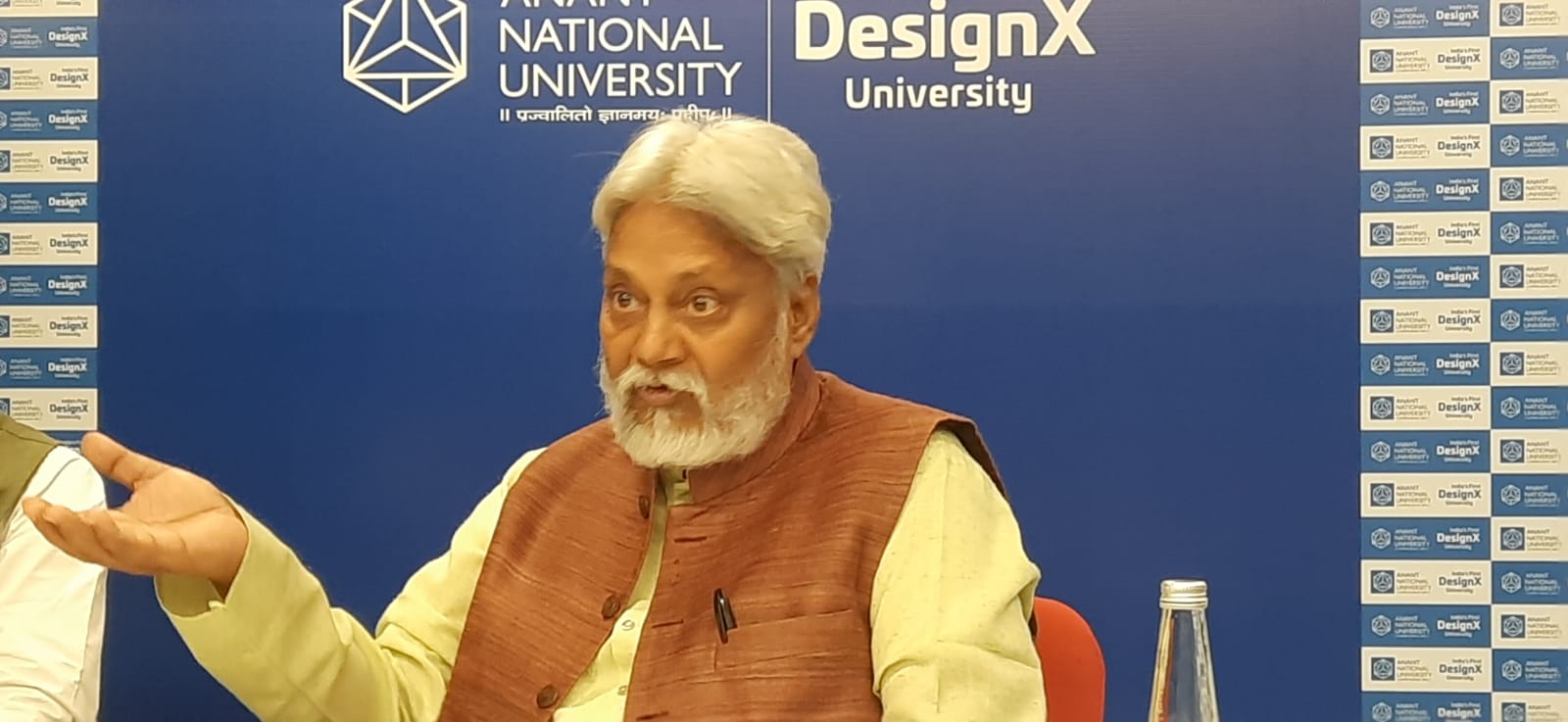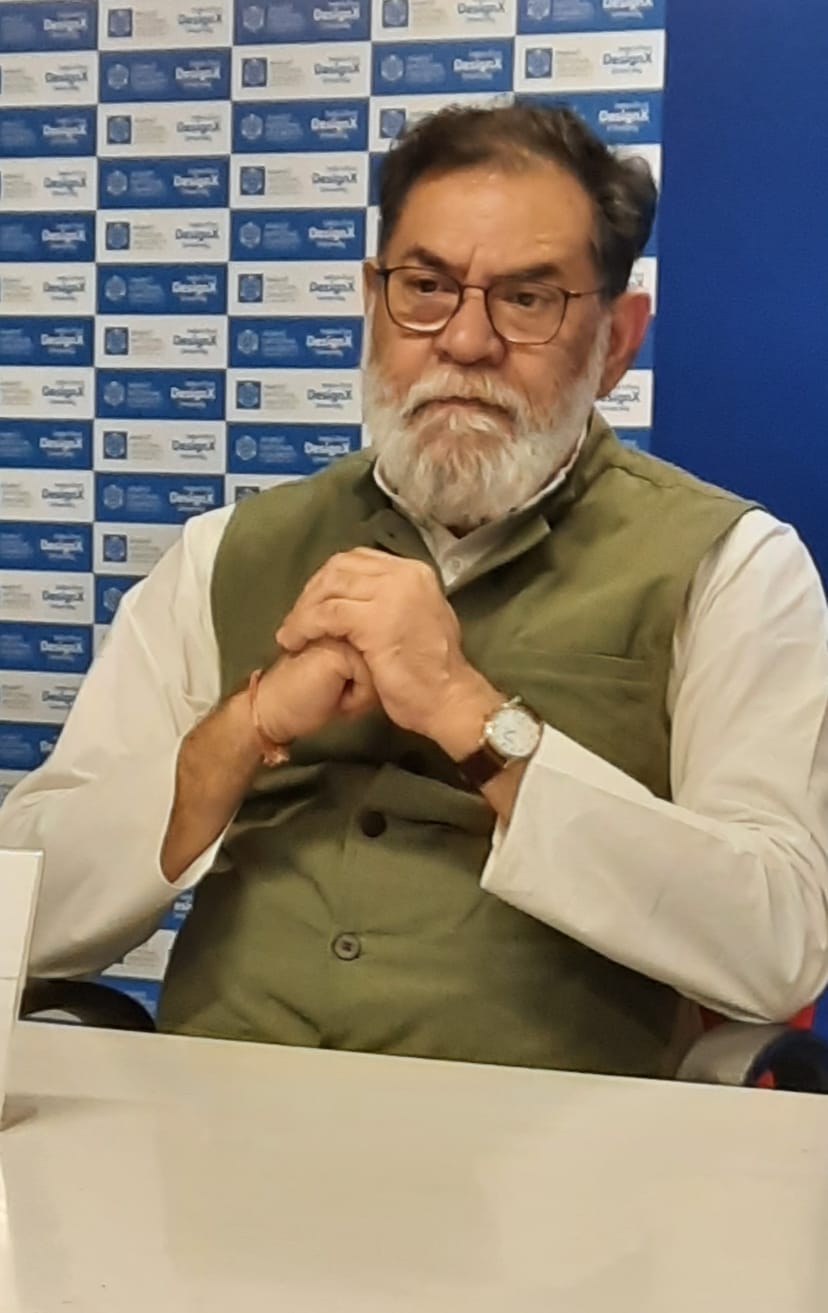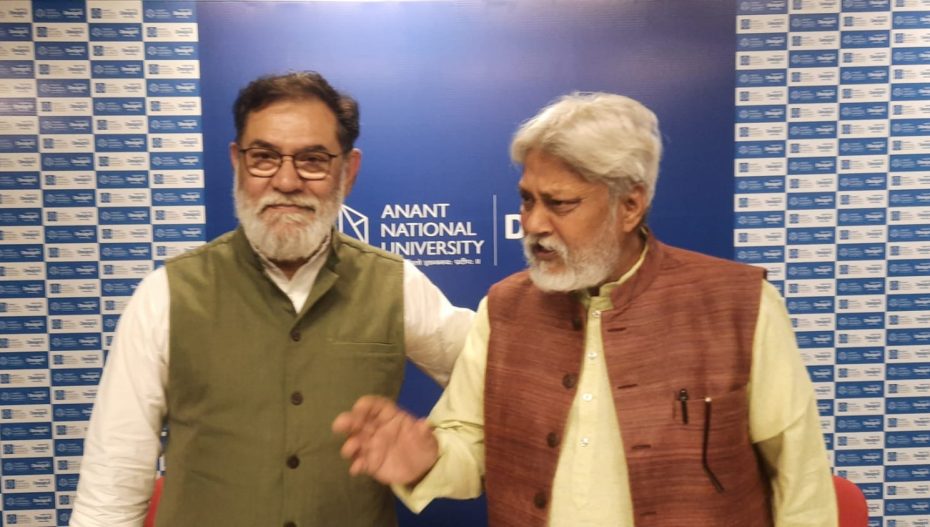Dr Rajendra Singh, nicknamed “waterman of India,” is joining the faculty of Anant National University, Ahmedabad, as the first Professor of Practice in Community Leadership in Environmental Design. Announcing this at a news conference on Saturday, Anant University Provost Anunaya Chaubey said that students today tend to be cut off from the realities of rural India and the induction of Dr Singh into the faculty will serve to fill a major knowledge gap.
“Young people need a role model, someone who can guide them and help them understand societal structures and the challenges communities face. Dr Singh is a superhero, who will play this crucial role at Anant,” he says.

The winner of the 2001 Ramon Magsaysay Award for community leadership, Dr Singh is credited with reviving 23 rivers across India through his work in water conservation. At Anant, he will be overseeing three studio projects per semester, where students will spend several days in the hinterlands of Alwar, Rajasthan, the base for much of his work. “Classroom learning has its limits,” he says. “But when a student goes to the field, he truly understands and learns. I learnt what I know about water conservation from village elders in Rajasthan.”

One of the first student projects Anant University has planned under Dr Singh is Creating a Geo-Cultural Map of India. “Studio projects are done in groups and require students to research, investigate and ideate,” says Dr Chaubey. “At the end of the project, they will be evaluated by a jury of experts like Dr Singh. This is the first time an academic institution in India is bringing in someone best known for his work in the field.”
Along with his teaching, the 65-year-old Waterman of India will also be chairman of the newly created Anant Centre for Indigenous Knowledge Systems and Practices, whose mission is to document traditional agricultural practices, starting with those related to water conservation. “Dr Singh has turned theoretical concepts into actionable solutions by integrating traditional knowledge with innovative practices. His work is a testament to the power of community-led initiatives, transforming local efforts into mass movements,” says Dr Chaubey.
Also Read: Two Years On, Morbi Tragedy Chargesheet Unveils Roles of Ten Accused












